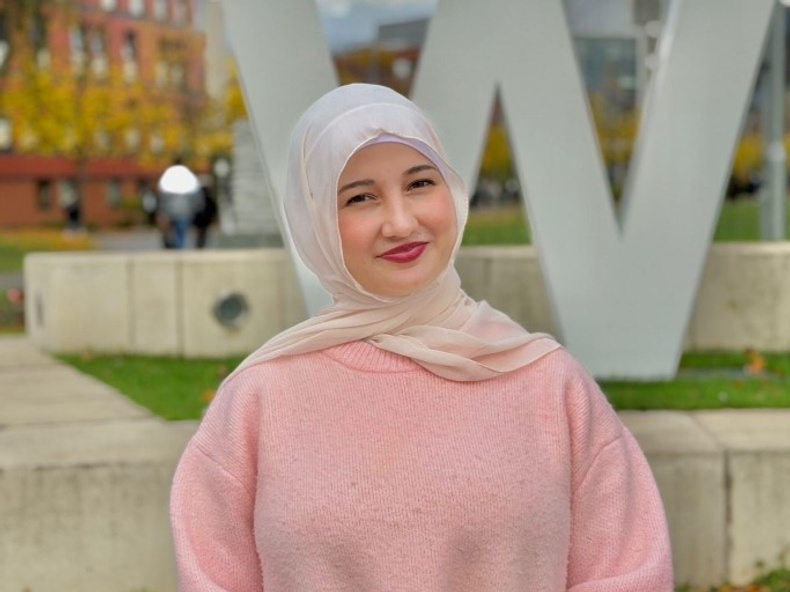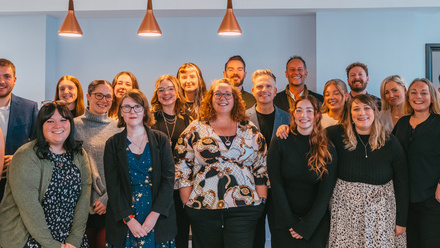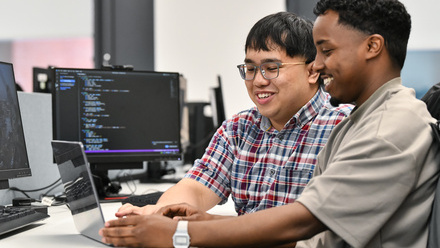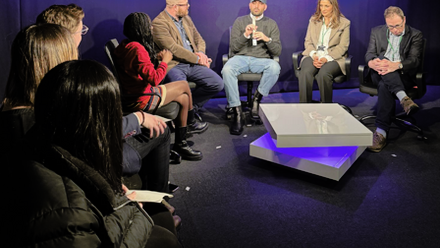Aston welcomes first medical student from Gaza as part of pilot programme

Aston Medical School has welcomed its first student from Gaza as part of a pilot programme which will bring medical students from regions of conflict and natural disaster to Birmingham to aid their studies.
Shahd Alhajjar (pictured) began her medical studies at Al-Azhar University in Gaza. In October 2023, when the current Israel-Palestine conflict broke out, Shahd had just begun her third year.
She describes the situation as “a nightmare”, with even her university being bombed.
She and her family evacuated to Dagestan, part of Russia.
With so much uncertainty about whether they would ever return to Gaza, Shahd embarked on a preparatory year to study medicine in Dagestan, while teaching Arabic as a foreign language to support herself.
However, nine months later, Al-Azhar University began an online medical course, and Shahd and her fellow students resumed their third-year studies.
Shortly after this, Shahd found out about a surgical skills competition at the University of Oxford, and decided to enter.
She was one of the top seven students amongst more than 700 entrants, who were selected for two summer schools in surgical skills at the university- getting a visa took two months.
After the first summer school this year, Shahd visited a friend in Leicester, who introduced her to a doctor friend, Dr Shameeq Saeed, who in turn introduced her to Dr Shahid Merali, Dr Afshan Ahmad and Dr Shagaf Bakour, all at Aston Medical School, who realised that Shahd would be an ideal candidate for the newly funded conflict medical students programme at Aston University.
Many students in regions of conflict or natural disaster, like Shahd, have had their studies interrupted or halted.
By providing such students with clinical placements as exchange students, Aston University can support their learning, allowing them to go home and graduate and serve their own communities as qualified doctors.
The project is being led by Dr Merali, a clinical associate professor at Aston Medical School.
The first eight students are all expected to come from Gaza. Dr Merali says that if further funding can be secured, the Medical School will seek placement students from other areas where medical students’ studies have been interrupted.
Dr Merali explained that he and his colleagues will work with Leicester Medical School and Hull York Medical School to identify further suitable students for the programme. The three medical schools have links with the two medical schools in Gaza.
Dr Merali’s GP surgery in Darlaston, near Birmingham, will host Shahd for her placement. She hopes one day to be a GP and is excited to get started with the placement and with lectures, after an 18-month gap since she last studied formally. She says that she has already found people very willing to help and answer her questions.
All placement students will be well supported by Aston Medical School’s own academic, pastoral and professional support colleagues, alongside staff members involved in the University of Sanctuary initiative. Universities of Sanctuary are part of a nationwide network of higher education providers that supports people displaced by humanitarian crises. Aston was named a University of Sanctuary in 2022.
Dr Merali, a clinical associate professor at Aston University, said: “This project is so important. Medical students’ learning in Gaza has been disrupted.
“If we support these medical students, they can complete their learning here, and go back and serve their population.
“I feel we have an ethical responsibility, as healthcare professionals and global citizens, to support these medical students.”
Shahd said: “When something like [the Gaza conflict] happens, your whole life stops. I had to make a choice whether to carry on with my medical studies or do something completely different.
“There is a doctor in Gaza called Hasan Abu Saffia and he could have left, but he didn’t want to leave his patients. There are lots of doctors in Gaza doing that, trying to help people even though their families are in danger, or they haven’t seen them in months, and they choose to stay.
“You can choose to do something, or to learn something, that can help your people. Seeing all of that has encouraged me to complete this path and I hope one day, I can help people also.”



